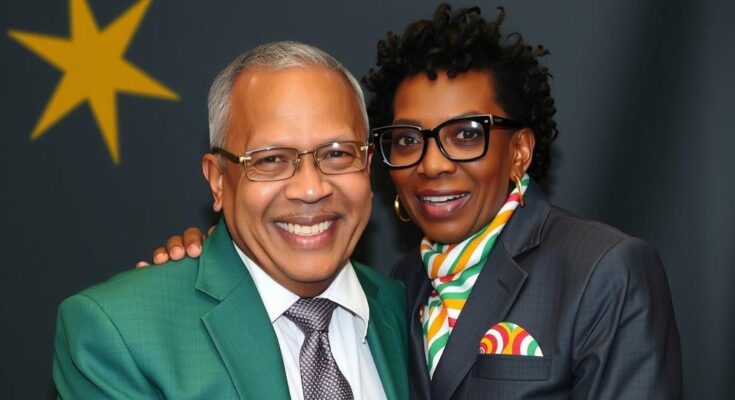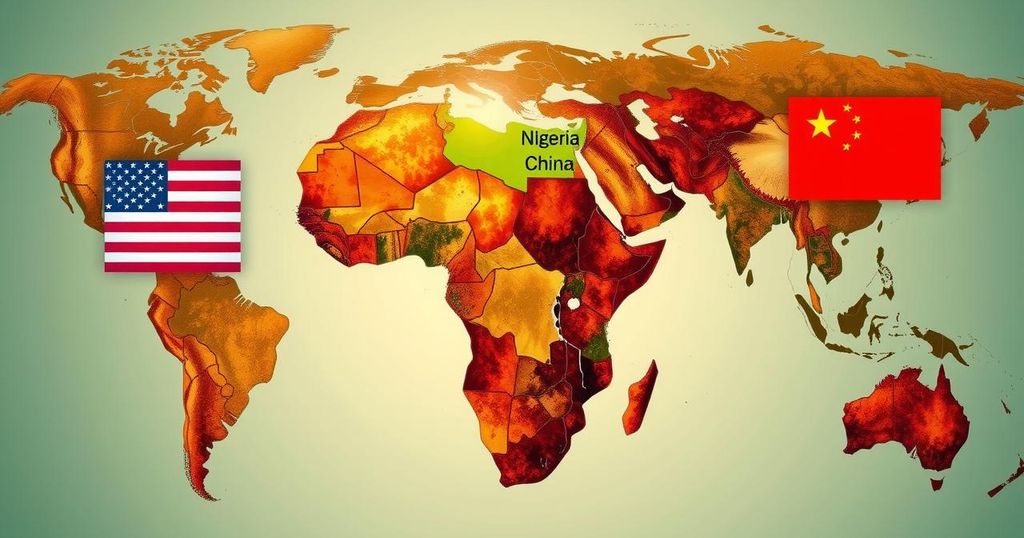The IPC in Namibia, led by Panduleni Itula, has rejected the results of the recent election, citing logistical problems and electoral malpractice. Swapo’s candidate, Netumbo Nandi-Ndaitwah, is currently leading with 48% of the vote. Voting was extended due to issues with ballot papers, and the IPC plans to seek legal redress concerning the election’s legitimacy.
Namibia’s main opposition party, the Independent Patriots for Change (IPC), led by presidential candidate Panduleni Itula, has announced its refusal to recognize the results of this week’s general election. Itula cited significant logistical issues and alleged rampant electoral malpractice, calling the election results “glaring and undeniable.” Voting, which commenced on Wednesday, was extended until Saturday due to a shortage of ballot papers and faulty equipment across several regions.
Itula aims to unseat the current ruling party, the South West Africa People’s Organisation (Swapo), which has maintained power since 1990. Swapo’s candidate, Netumbo Nandi-Ndaitwah, is vying to become Namibia’s first female president. As of now, Nandi-Ndaitwah has secured approximately 48% of the votes, with Itula following at 30%. Under Namibian law, a candidate must achieve over 50% of the votes to avoid a runoff. The IPC has vowed to contest the electoral outcomes through legal means, urging those who faced voting complications to lodge complaints with the authorities.
Namibia has faced challenges similar to other regional liberation movements, witnessing a decline in Swapo’s popularity, evident in the recent elections where it garnered less than 60% of the vote for the first time in 2019. This mirrors the political shifts seen in neighboring countries, where established ruling parties have experienced setbacks. As the votes continue to be tallied, the IPC remains determined to seek justice over what they perceive as an illegitimate electoral process.
The election in Namibia represents a crucial moment in the country’s democratic evolution, particularly given the long-standing dominance of the Swapo party since the nation’s independence in 1990. As a nation of approximately three million people, with nearly half eligible to vote, the integrity of elections is vital for public trust. Panduleni Itula, representing a new opposition force, highlighted systemic issues during the election process that could undermine democratic principles. Historically, Swapo has faced increasing voter discontent, suggesting a shifting political landscape in Namibia and the broader region.
In summary, the refusal of the IPC to recognize the election results underscores significant allegations of electoral malpractice during Namibia’s recent elections. As votes are counted and the political landscape becomes increasingly contentious, the IPC appears committed to challenging the status quo through legal avenues. This situation highlights the broader regional trends of declining popularity for long-entrenched political parties, which may further influence Namibia’s democratic trajectory.
Original Source: www.bbc.co.uk




